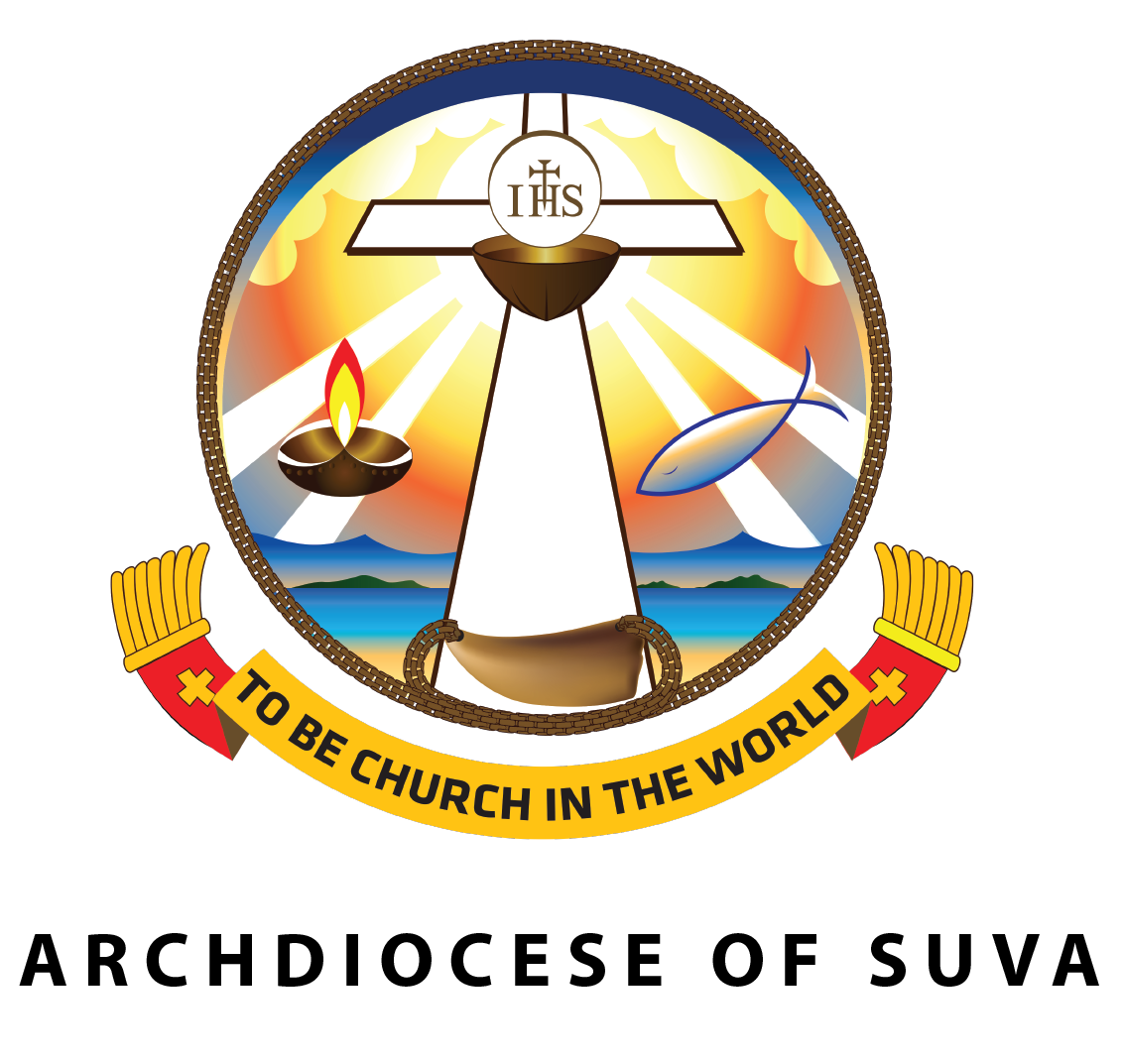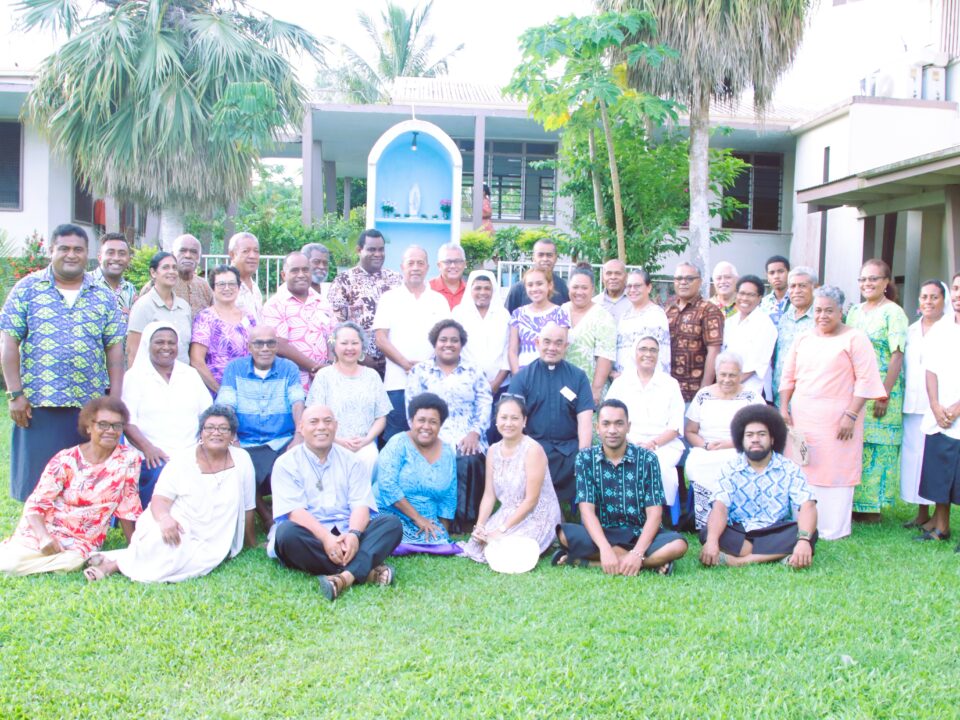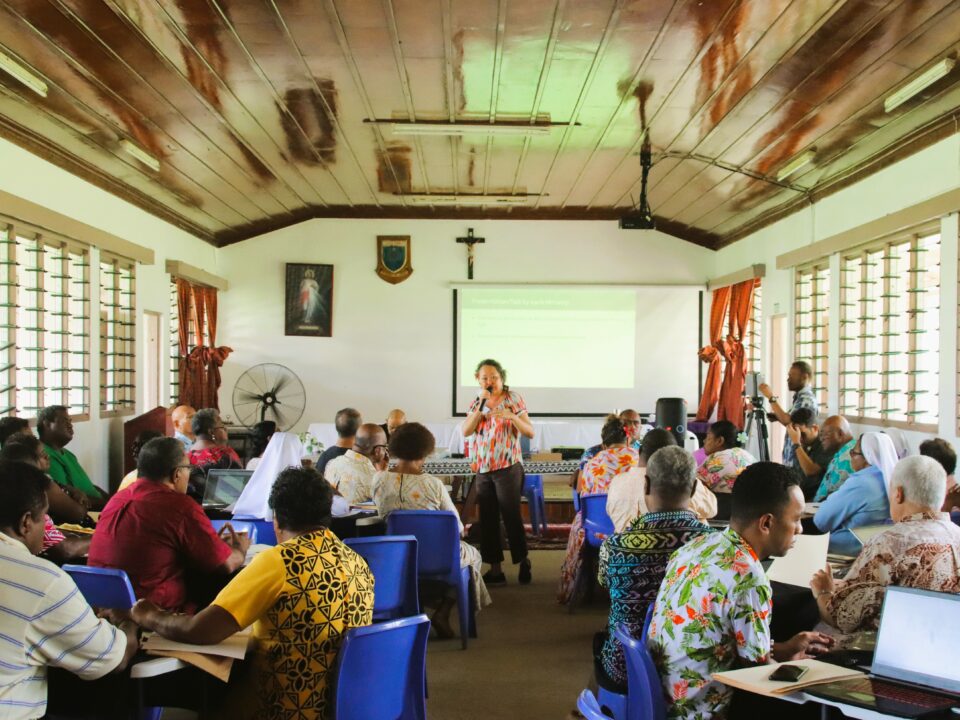LAUNCH OF ‘THE FIJIAN PEOPLES CHARTER’
I thank John Samy for inviting me to launch his book, ‘The Fijian Peoples Charter’. I feel honored to do this, particularly knowing that I follow the legacy of Archbishop Petero Mataca who was co-chair of the National Council for Building a Better Fiji.Historical analysis is a key tool for social analysis. It investigates crucial questions such as: Where are we coming from and where are we going?
Historical analysis relativizes current events and problems by placing them on a broader historical perspective. Historical analysis views the present situation as a social and historical process. It reflects on what the future will be like if the present trends continue and thus prevents what historians call a ‘future shock’.A historical consciousness recognizes that human beings not only make history, they also destroy history. Human beings therefore are responsible for the shaping of history. The world’s future lies in the values, decisions and actions of the present human community. Since human beings are capable of creating and destroying history, they have a key role in the transformation of history and society.
History can transform its own configuration and direction, but it can only achieve this with human cooperation. Hence, human beings have ethical, moral, and practical obligation towards the transformation of history.
Paulo Freire, the renowned Brazilian educator holds that historical consciousness is a vital tool for people’s liberation and empowerment. He argues that historical consciousness empowers people to be subjects of their history rather being passive objects of history
The American historian, Gordon S. Wood argues that while history may not teach lessons on how to guide the present and the future, it does however have a profound effect on our consciousness and how we ought to live. He adds that we read or study history because it has something to say to us. If history has nothing to say to us, then it makes no sense to read or study about it at all. He said that:
History is important to us, and knowledge of the past can have a profound effect on our consciousness, on our sense of ourselves. History is a supremely humanistic discipline: it may not teach us particular lessons, but it does tell us how we might live in the world today. Some have said that history for a society is like memory for an individual. Without memory, the individual is isolated, cut off from where he has been and who he is.
History, Woods adds, gives us a sense of where we have come from and how we became what we are. He contends that historical awareness gives us the best guide for shaping the present and the future.
The Fiji Peoples Charter: My Role on a Better Fiji for All, by John Samy is a historical book intended to give us a historical consciousness. The book records the Interim Government’s strategic plan following the 2006 coup. The Peoples Charter for Change and Progress represents Bainimarama-Interim Government’s strategy.
Addressing the General Assembly of the United Nations in New York, USA in September 2007, Frank Bainimarama stated:
“To achieve all this, the Interim Government has launched a major national initiative, referred to as the ‘Peoples Charter for Change and Progress. Through PCCP, the broad cross section of Fiji’s people will fully be engaged and involved, through meaningful consultative and participatory processes, to develop a comprehensive agenda of actions and measures, as Fiji’s own way of addressing its problems.”
“I submit that the PCCP initiative, once fully underway will represent a truly national collective effort, of Fiji’s people, and in particular its leaders (in civil society, in the Interim Government, and indeed also in the Military), working together to get Fiji out of the deep rut.”
“The Peoples Charter, once formulated and adopted, will provide the strategic framework or fundamental foundation within the Interim Government, and also successive elected governments, will be expected to operate.”
On 17 November 2011, John Sammy and the Late Archbishop Petero Mataca (Co-Chair of PCCP) wrote to Mr. Bainimarama to express their concerning issues related to the Charter and his leadership and recommendations on the ‘Way Forward Measures and Actions’.
Looking back the 13 years since the PCCP was published, John Samy asks the critical and most important question in the book,
‘Why the Fiji First Political Party-led Government of Mr. Bainimarama have, since the general election of 2014 and to-date, becomes so conspicuously silent in regard to the Peoples Charter. The vast majority of the people of Fiji who embraced the Peoples Charter need to, and must, know why.’
‘In this overall context, the fundamental questions persist: Whereto now, for Fiji and, for its people.’
To add Mr. Samy’s questions:
Why does a strategic vision – involving a broad consultation for developing a nation gets lost?
Why did the government drop or forget the Charter?
Why does the voice of the minority (and not the majority) have the final say in Fiji?
Who makes decisions?
This is a political question needing a political analysis. What is the form of power exercised in Fiji’s history?
Why of the what happened?
A key characteristic power in Fijian history is ethnic politics. Ethnic politics and its corollary, the patron-client politics, is a global phenomenon. Alumita Durutalo argued that the mainstream I Taukei political parties extensively used patron-client politics.
Daniel N. Posner, Institutions and Ethnic Politics in Africa, posits that all societies are made up of various ethnic cleavages. These cleavages are based on religion, ethnic origins, language, tribe, and other dimensions. Hence, the goal and the most commonsensical strategy of politicians would be to politicize a particular ethnic cleavage or group which best serves his or her political interests.
Posner adds that there are three basic reasons why politicians choose a particular ethnic cleavage as the base of their political campaign. First, people want resources from the state. Second, they believe that having someone from their ethnic group in a position of political power will facilitate their access to those resources. And, third, people understand that the best way to get someone from their ethnic group into a position of political power is to build or join a political coalition with fellow group members.
Sara Berry, No Condition is Permanent:the social dynamics of agrarian change in Sub-Saharan Africa, explaines that patron-client politics is a political relationship that is innate to almost all societies. It is a relationship between those who have resources (chiefs, headmen, wealthy farmers and traders, and those in positions of power) and those who needed resources (peasants and workers).
Bruce J. Berman, “Ethnicity, Patronage and the African State: The Politics of Uncivil Nationalism,” states that the framework of patron-client politics is based on three basic factors:
- the patron-client relationship between two parties unequal in status;
- relationships based on reciprocity of goods and services;
- the face-to-face contact between the two parties.
The social consequences of the patron-client politics
- Patron-client politics do not educate and empower people to question the root causes of their problems and identify ways of solving them. Under patron-client politics rural dwellers and workers believe that the government holds the solution to all their problems. The ‘Big Boys’ use the state’s resources and their wealth to secure the political support of the “Small Boys”. Patron-client politics focuses on this dyadic relationship. As a result, the root causes of the peoples’ problems are not addressed and there are no long-term developments.
- Patron-client politics neglects national development. Patron-client political strategies are limited to the short-term gains and interests of patrons and clients and therefore national developments could not receive the primary focus and commitment they deserve. Patron-client politics directs its resources and energy to ethnic interests and petty development projects while neglecting the broader national needs.
- Patron-client politics exploits and is vulnerable to corruption. It is a private agreement, unwritten, and highly personal in content. The private nature of the patron-client politics opens up to corruption.
- Patron-client politics breeds a culture of silence. In patron-client relationship clients are indebted to patrons. The clients will focus on maintaining this relationship and therefore they cannot challenge the patron when their needs are not met. Paulo Freire contends that patron-client politics breeds a “culture of silence.” Freire defines the “culture of silence” as a situation where people have come to accept their social problems passively.
- Consequences of Patron-Client Politics on Political Parties. Because patron-client politics is based on short-term relations between the “Big Men” and the “Small Boys,” political parties tend to be politically inconsistent and lack long term plans. Patron-client politics is only concerned with immediate problems and therefore they are only relevant under certain conditions.
Thesis
- Fijian politics is characterized by patron-client politics.
- Patron-client politics focuses maintaining relationships between the Big and Small boys.
- This is the reason for lack of long term development plans and dropping of the Peoples Charter.
The Way Forward
It is not the Church’s role to replace the state and politics. Neither is it the Church’s role to make policies; rather, the Church seeks to inspire the state and, in particular, its political institutions with the beauty and goodness of Catholic Social Teaching in order to bring about a more just society.
Social doctrine of the Church has two purposes:
- To set forth the requirements of just social action as they appear in the Gospel;
- In the name of justice, to denounce social, economic, or political actions and structures whenever they contradict the Gospel message.
The Church wants to build a just society and it seeks to do so on the solid foundation of four fundamental values: Truth, Freedom, Justice and Love.
I recommend that you buy ‘The Fiji Peoples Charter’. It tells where we have come from, where we have gone astray. I have tried to explain why the government has forgotten the Charter and consequently, that old politics should be eliminated.
I thank Mr. John Samy for donating the sales from his book to the Foundation for the Education of Needy Children (FENC) and this gives me great honor to launch the ‘The Fiji Peoples Charter’.



